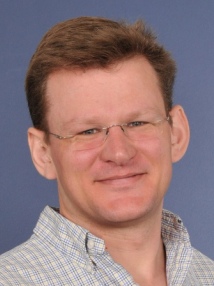iCore seminar by Dr. Eric Kerrigan (Imperial College, UK)
15 October 2015 (Thursday) - from 11:00 to 12:00
Dennis Gabor Seminar Room, 611, level 6, EEE Dept. @ Imperial College
 Eric Kerrigan is a Reader in Control Engineering and Optimization at Imperial College London, where he has a
joint appointment in the Department of Electrical and Electronic Engineering as well as the Department of Aeronautics. His research
is on efficient numerical methods and computer architectures for solving optimization, control and estimation problems in real-time,
with applications in aerospace, renewable energy and computing systems. He is Chair of the United Kingdom Automatic Control Council
and on the editorial boards of the IEEE Transactions on Control Systems Technology, Control Engineering Practice and IEEE Control
Systems Society Conferences.
Eric Kerrigan is a Reader in Control Engineering and Optimization at Imperial College London, where he has a
joint appointment in the Department of Electrical and Electronic Engineering as well as the Department of Aeronautics. His research
is on efficient numerical methods and computer architectures for solving optimization, control and estimation problems in real-time,
with applications in aerospace, renewable energy and computing systems. He is Chair of the United Kingdom Automatic Control Council
and on the editorial boards of the IEEE Transactions on Control Systems Technology, Control Engineering Practice and IEEE Control
Systems Society Conferences.
Seminar Title: "Feedback and Time for Computer Design"
Abstract: The performance, reliability, cost, size and energy usage of computing systems can be improved by one or more orders of magnitude by the systematic use of modern control and optimization methods. Computing systems rely on the use of feedback algorithms to schedule tasks, data and resources, but the models that are used to design these algorithms are validated using open-loop metrics. By using closed-loop metrics instead, such as the gap metric developed in the control community, it should be possible to develop improved scheduling algorithms and computing systems that have not been over-engineered. Furthermore, scheduling problems are most naturally formulated as constraint satisfaction or mathematical optimization problems, but these are seldom implemented using state of the art numerical methods, nor do they explicitly take into account the fact that the scheduling problem itself takes time to solve. This talk will make the case that recent results in real-time model predictive control, where optimization problems are solved in order to control a process that evolves in time, are likely to form the basis of scheduling algorithms of the future. We will therefore outline some of the research problems and opportunities that could arise by explicitly considering feedback and time when designing optimal scheduling algorithms for computing systems.